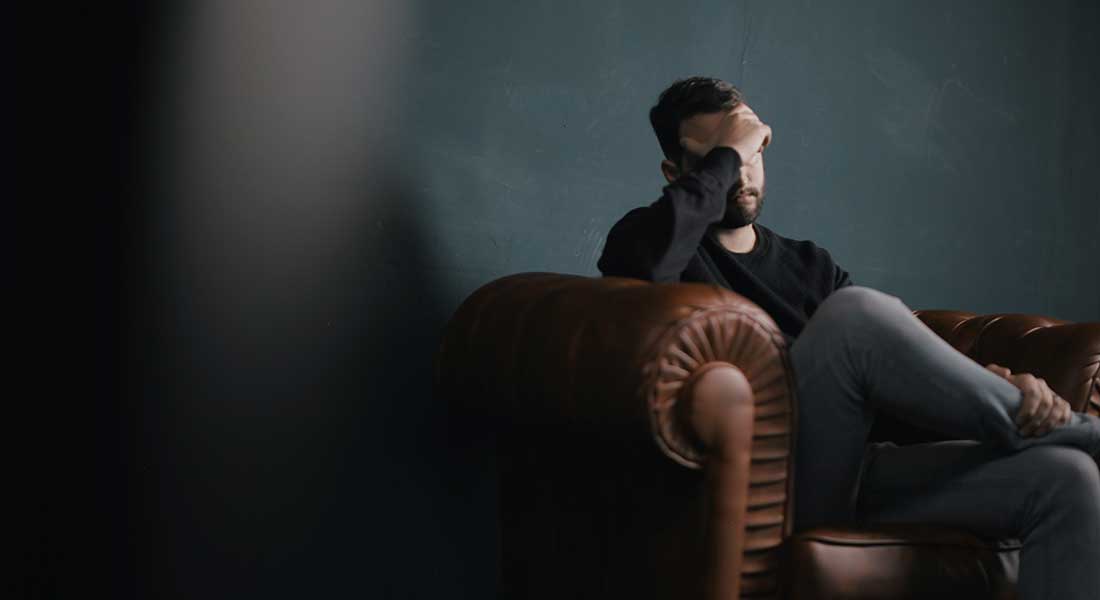Difficult to Return to Work After a Concussion
People suffering from long-term effects of a concussion find it difficult to return to work. A new study conducted by the Danish Concussion Center and the University of Copenhagen shows that general practitioners, the municipalities and the employers need to make an effort to help these people back to the labour market.

Each year, as many as 25,000 Danes are affected by a concussion. The majority of these see improvement within two to three weeks. But 30-40 per cent experience long-term effects that last more than a month. In order to return to the labour market, the latter group has to overcome various obstacles.
In a new Danish study, researchers from the Danish Concussion Center and the University of Copenhagen have cooperated with the Center for Rehabilitation of Brain Injury on studying people’s experience of returning to work after having suffered a concussion. The study identifies the obstacles and challenges experienced by this group in returning to work and thus areas in need of improvement:
General practitioners need more knowledge and better tools
According to the concussion-affected people who participated in the study, their GP lacked knowledge of the long-term symptoms of a concussion and of the rehabilitation options in the local municipality. Furthermore, they could not refer patients directly to rehabilitation, even if they did have knowledge hereof, as Danish GPs can mainly refer patients to the hospitals, which generally do not provide rehabilitation. Several patients felt that it was their own responsibility to manage the condition and get the right help.
Treatment options depend on the local municipality
‘Our study shows that the treatment options available to patients with a concussion differ widely between the municipalities’, says Heidi Graff, PhD, from the Danish Concussion Center, who is one of the researchers behind the study. The participants in the study stressed that the municipal caseworkers had different levels of knowledge of the condition. Their general experience was that the municipality’s appointed concussion coordinator was very helpful, but the study shows that not all Danish municipalities make this expertise available.
Lack of understanding for invisible discomfort
Another obstacle is the help and guidance provided by the social workers at the municipal job centres. The patients involved in the study stressed that the frequent meetings they had with the social workers were unnecessary and not adjusted to their needs. They also felt that they had to defend the condition, as the symptoms are invisible. They were met with the same lack of understanding at work, where both managers and colleagues need to understand that invisible discomfort following a concussion means that the patient can take on less work.
The results of the study identify areas in need of improvement, and according to the head of the study, this charts the course:
‘Our study identifies the areas and actors that patients with a concussion feel are vital to their ability to return to work. Now we know which areas to improve – both in relation to the individual and the professionals the patients meet in the process’, says Associate Professor at the University of Copenhagen and PhD in Neuro Psychology Hana Malá Rytter, who is also the day-to-day manager of the Danish Concussion Center.
Contact
Associate Professor Hana Malá Rytter
Department of Psychology
Faculty of Social Sciences
Email: hana.mala@psy.ku.dk
Communications Consultant
Charlotte Aabo
Phone: +45 24 95 97 31
Topics
Related News
Contact
Associate Professor Hana Malá Rytter
Department of Psychology
Email: hana.mala@psy.ku.dk
Phone: +45 35 32 48 75
Communications Consultant
Charlotte Aabo
Phone: +45 24 95 97 31
